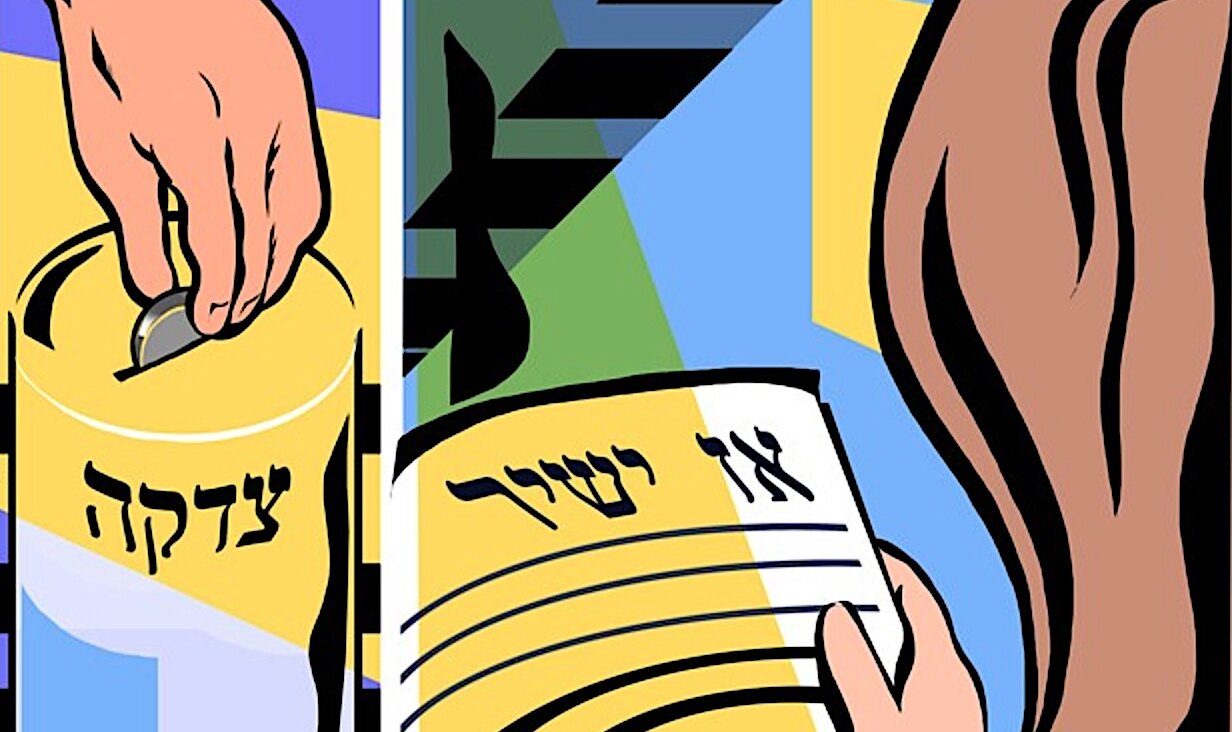Josie and the Amazing Technicolor Dreamcoat
As Josie ages, her relationship with media and culture changes. Everything seems to be a source of both joy and anxiety for her. Case in point: As part of our nightly bedtime ritual, I always sing Josie a couple of show tunes. (Yes, I am a gay man.) She’s always loved this special time, and I treasure the fact that she is still young enough not to be mortified by my warbling. (I know the time soon will come when all I have to do is hum in public for her to roll her eyes and hiss, “Mother!”) But suddenly she’s starting to ask what the songs mean. She often asks whether the characters in the songs are “real.” (Realness is a new preoccupation for her. Are her dolls real? Is Minnie Mouse real? And most surprisingly, as she asked my mother on the subway, “Are we real?” Looking at my husband, the former philosophy major, my professor mother answered, “Yes, Josie, we’re real, if we’re to believe Bishop Berkeley!” And then all two of the people with doctorates laughed and laughed while I stood there like a doofus.)
Anyway, Josie has been asking lots of questions about the goings-on in various Broadway musicals. Of particular concern to her is “Joseph and the Amazing Technicolor Dreamcoat.” And the more plot I explain, the more I worry that I am scarring her for life. And the more I wish I’d just stuck with Baby Mozart CDs. Why do Joseph’s brothers hate him? Why does Jacob give a present only to Joseph? Why does Joseph tell his brothers his dreams if they hurt the brothers’ feelings? Why do the brothers rip his coat and kill a goat? (That last one actually sounds like Dr. Seuss on a really, really bad day.)
Basically, I explained that everyone in the story behaves badly. Everyone is wrong. Jacob is wrong to love one child best. (At this point, Josie generally sings out, “Because you have room in your heart for me and Maxine!”) Joseph is wrong to make his brothers feel bad. The brothers are wrong to pretend to kill Joseph, throw him into a pit and sell him to Ishmaelite slave traders. (Please, God, don’t let Josie get any ideas.) In the end, I assure Josie, everyone becomes mature (that’s another of her obsessions, from Judith Viorst’s Alexander books — “What means immature?”). Everyone learns how to behave. Joseph and his father and his brothers reconcile and learn to get along. Still, I see her little brain ticking away as I’m singing, and I worry. (For her and for Maxine. Thank God I haven’t seen any Ishmaelite slave-trade caravans in the East Village lately.)
But now I’m even more worried about my addle-pated decision to sing “Maybe,” from “Annie,” to her. What’s an orphanage? Where are Annie’s mommy and daddy? What the heck were you thinking, Marjorie, you dimwit? I explain lamely to my quizzical daughter, “Some kids have no parents.” I feel a bit cowardly, not telling her that Annie’s parents are dead. Is it worse — and weirder — for her to listen to the song and wonder: Why, exactly, is Annie yearning for people who don’t exist, asking them to come get her? Will I make her worry that I’ll disappear, and is that worse than talking about death and making her worry that I’ll die? Am I copping out, like the cowardly parents who, when their kids start asking where babies come from, explain, “Inside the mommy’s belly there’s a seed…,” thereby leading the child to believe that if she swallows a cherry pit, she’ll get pregnant?
Josie’s very favorite cast album is “Avenue Q.” When she was 2, Jonathan and I would giggle at her piping rendition of “The Internet Is for Porn” (presumably we’d stop laughing when New York City’s child welfare department showed up at our door). But now that Josie’s asking philosophical questions about the show — “What does racist mean?” and “What does it mean to find your purpose?” — how the heck do we answer? (I tried explaining that “racist” means thinking people are bad just because their skin is a different color from yours. But Josie responded, “But it’s okay to be racist to yourself,” and no, I have no idea what that means either. I just said, “Well, it’s never okay to be racist.” A friend suggested that maybe Josie meant that it’s okay to tell ethnic jokes about your own ethnicity, but I think that’s a reach, even for a really, really smart 3-year-old.
The kid has always been drawn to complex emotions. When she was tiny, maybe 15 or 16 months old, we had to hide the Eric Carle book “The Grouchy Ladybug.” The eponymous ladybug first refuses to split a leaf full of aphids with a friendly ladybug, then flies around threatening to fight increasingly big animals, for no apparent reason. Josie would demand to hear the book over and over, then sob. She wanted to face her fears, but didn’t yet have the judgment to do so. But by the time she was 2, she’d worked through her anxieties; she asked to be the grouchy ladybug for Halloween. I think she was accepting the idea that anger exists but needn’t be a completely destructive force.
But nowadays, I can’t always be the gatekeeper for every story or song Josie’s exposed to. And that can be scary for both of us. For instance, Josie just saw her first movie in a movie theater. (She’s seen a few films on DVD — in the special Josie version of “Finding Nemo,” thanks to the wonder of DVD technology and a mother who is fast with the “skip” button, there are miraculously no bloodthirsty mommy-fish-eating sharks!) She saw “The Incredibles,” where she sat on Daddy’s lap and frequently said: “I’m scared! I want to go home!” then promptly changed her mind and said she wanted to stay. In the end, she announced that she loved the movie and that the best part was when everyone got rescued! And she wants to wear her Violet pajamas (a gift from Auntie Ellen, who works for Disney, which distributed the movie) every night! I think sitting through the frightening parts to see that everything came out better than okay was a good lesson for her.
And sure, Daddy was a hero during “The Incredibles,” but sometimes, Daddy is the goat. Daddy goatishly let Josie watch the TV show “Higglytown Heroes” without vetting it first, simply because Daddy had heard that his indie-rock heroes, They Might Be Giants, wrote the theme song. Daddy quickly discovered that the song was indeed great, but the show was moronic. Too late. Josie was addicted instantly. We let her watch it a few times before announcing that TiVo had deleted it and it wasn’t on anymore. (Parenthood has reduced us to big-fat-liar-dom.)
This show offended me to my core. And actually, comparing it to “The Incredibles” is instructive. “The Incredibles” is about a world that scorns superheroes because their super-ness makes others feel inadequate. Superheroes are now ordered to be average; everyone is now special (which means, of course, that no one is). The message of the movie is that it’s okay to excel; it’s okay to stand out and let your freak flag fly, even if it does make other people feel insecure. The message of “Higglytown Heroes” is precisely the opposite: Everyone’s a hero! The pizza guy is a hero! The plumber is a hero! The show means to introduce kids to different careers, but by saying that everyone who does his job is a hero, isn’t it setting the bar awfully low? Doing what you’re paid to do isn’t heroic; it’s life! Heroes are people who act selflessly, who risk their lives for others.
I’d rather have Josie feel a bit frightened and challenged by pop culture (within reason — I won’t be renting “The Silence of the Lambs” for her anytime soon) than have her watch pap that doesn’t tickle her brain at all (and in fact, conveys happy-face nonsense I disagree with as a parent and as a human). Real life is full of pleasures and terrors.
Write to Marjorie at mamele @forward.com.

I hope you appreciated this article. Before you go, I’d like to ask you to please support the Forward’s award-winning journalism this Passover.
In this age of misinformation, our work is needed like never before. We report on the news that matters most to American Jews, driven by truth, not ideology.
At a time when newsrooms are closing or cutting back, the Forward has removed its paywall. That means for the first time in our 126-year history, Forward journalism is free to everyone, everywhere. With an ongoing war, rising antisemitism, and a flood of disinformation that may affect the upcoming election, we believe that free and open access to Jewish journalism is imperative.
Readers like you make it all possible. Right now, we’re in the middle of our Passover Pledge Drive and we need 500 people to step up and make a gift to sustain our trustworthy, independent journalism.
Make a gift of any size and become a Forward member today. You’ll support our mission to tell the American Jewish story fully and fairly.
— Rachel Fishman Feddersen, Publisher and CEO
Join our mission to tell the Jewish story fully and fairly.
Our Goal: 500 gifts during our Passover Pledge Drive!























